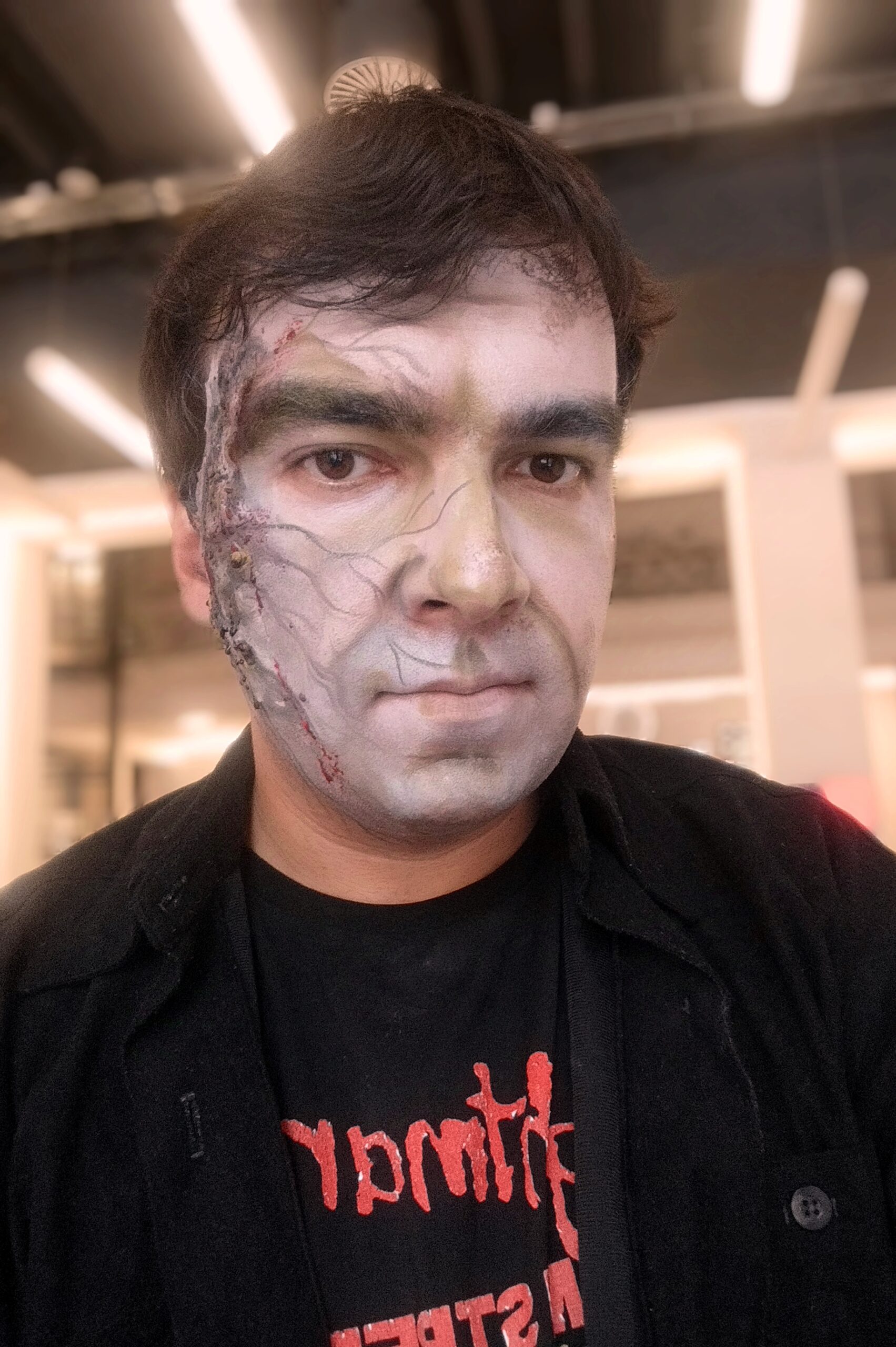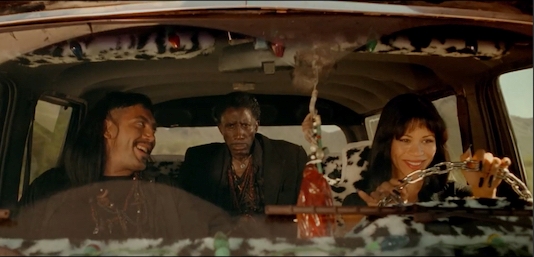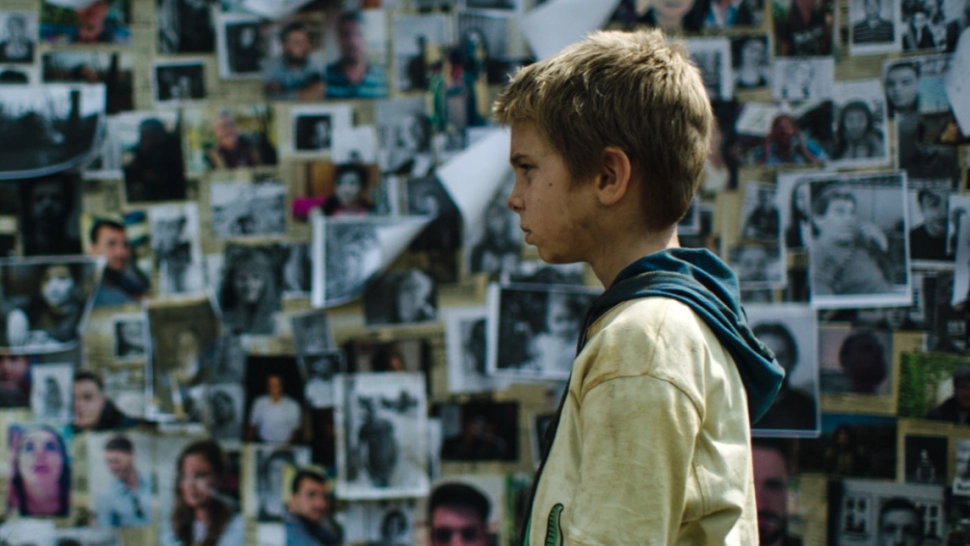
Progeny (1998)
Recently l re-watched this overlooked and almost forgotten science fiction/horror film. Last time I saw it on VHS couple of decades ago, with only a foggy memory of its plot and a little clearer memory of its alien horror scenes. The alien design, which stuck with me for years, was crafted by Japanese surrealist and the master of practical effects Screaming Mad George. He’s best known for the surreal nightmare “shunting” scene in Yuzna’s debut film, SOCIETY, as well as for the effects in the fourth A NIGHTMARE ON ELM STREET movie.

Screaming Mad George (originally named Joji Tani) frequently collaborated with Yuzna, resulting in many visual marvels (another good example being INITIATION: SILENT NIGHT DEADLY NIGHT 4). Naturally, it was often challenging to fit these visuals into a traditional narrative framework, partly due to the nature of the visual elements and partly because of Yuzna’s resistance to classic narrative structures. He tends to use ideas and surreal images as the starting point around which he tries to build his films, rather than the other way around.

Here, the approach is reversed. Yuzna directed PROGENY based on a screenplay by Stuart Gordon (his old collaborator and a friend) and Aubrey Solomon. The script is fairly clear, with well-defined characters and their roles. The story revolves around the couple who desperately wants to have a baby but is unable to conceive. The elements of ROSEMARY’S BABY by Roman Polanski served as an obvious inspiration, with the infusion of elements of paranoia and the tension between psychological explanation and the supernatural. Yuzna’s own SOCIETY might be another inspiration when it comes to the elements of paranoia and body horror. William Friedkin’s THE EXORCIST might also be referenced, especially in the depiction of experts who treat the protagonist’s pregnancy (or “pregnancy”) in their own ways.

The film is considerably better than it may initially seem. There are (inevitable?) cliché moments which is typical for most UFO films, but Yuzna is quite inspired, especially in collaboration with Screaming Mad George. Together, they turn the seemingly conventional portrayal of aliens (this is not a spoiler) into an exceptional, nightmarish and perverse images of psychological and body horror. There are almost Lovecraftian scenes of body-cosmic horror featuring aliens (or “aliens”) and abduction scenes involving the chosen (or “chosen”) protagonist.
In the flashback scenes of abduction and its aftermath, sex and sexual terror play a strong role, once again giving Yuzna and Screaming Mad George room to unleash their surreal, perverse visions. The film deliberately emphasizes this, drawing a clear connection between the psychological and physical (mainly sexual) state of the characters – that is, the male protagonist’s impotence and their experiences during the abduction (or “abduction,” as you prefer) on the space station.
Yuzna is also interested in the subjective distortion of real images, in subjective simulacra, of visual elements that characters see differently. Images drawn from the subconscious and deepest fears become surreal visions that quickly dissolve as the characters return to reality (or “reality” – this is the last time, I promise!). Through subjective simulacra as a window into the unconscious, Yuzna’s obsession with surrealism and his attempts to bring his truly creative and nightmarish visions to the screen become even more apparent.

The camera work is mostly fluid but more controlled, in the style of Tarkovsky, whose SOLARIS was a major and obvious influence on creating an atmosphere of claustrophobia and the psychological turmoil of the characters, blending organically with the genre elements. In this case, most genre traits stem from these elements. In other words, the horror and science fiction elements can be interpreted more psychologically than as concrete reality for the characters. Progeny is like a horror-infused Solaris—shorter and more dynamic, with a strong influence from ROSEMARY’S BABY, SOCIETY and, at the time, the mega-popular THE X-FILES. While this sounds great on paper, several repetitive scenes of psychological breakdowns hold the film back slightly, and Progeny doesn’t fully deliver on its potential as a psychological sci-fi horror. Additionally, despite the efforts and influences, the cinematography occasionally appears flat and repetitive, almost like 90s TV cinematography, though it never drops to that level.

The screenplay mostly manages to balance things well and the ending is quite effective. On first viewing, the ending struck me as straightforward and a bit clichéd, but on re-watch, I realized how perfectly it wraps up the entire story.
Rating: 3/5







Leave a Reply